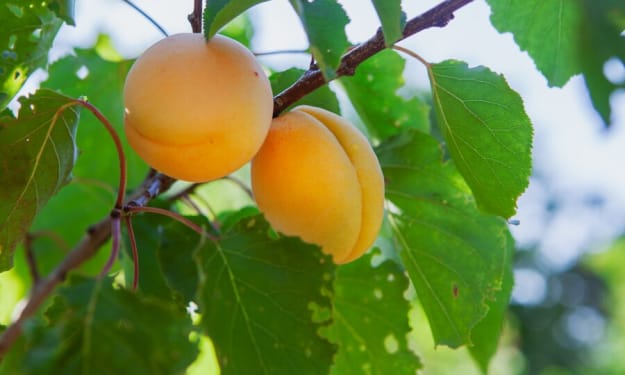Embracing Nature's Canvas
The Art of Gardening in the UK

Gardening in the United Kingdom is a beloved pastime that allows individuals to connect with nature, create beautiful landscapes, and enhance the biodiversity of their surroundings. From quaint cottage gardens to stately country estates, gardening in the UK encompasses a rich tapestry of styles and traditions. In this article, we will delve into the art of gardening in the UK, exploring its unique characteristics, essential techniques, and how to cultivate a thriving garden in this diverse and verdant land.
Celebrating the UK Gardening Heritage (Cottage Gardens & Formal Gardens)
Cottage Gardens
The quintessential cottage garden is an iconic part of the UK's gardening heritage. Bursting with an array of vibrant flowers, fragrant herbs, and climbing roses, these gardens evoke a romantic and nostalgic charm. Cottage gardens often feature informal layouts, meandering paths, and a mix of perennials and self-seeding annuals, creating a delightful tapestry of color and texture. Traditional cottage garden plants include lavender, delphiniums, foxgloves, and roses, which thrive in the UK's moderate climate. The relaxed and natural feel of cottage gardens captures the essence of country living and invites wildlife such as butterflies and bees.
Formal Gardens
Reflecting the grandeur of stately homes and palaces, formal gardens in the UK are meticulously designed with symmetrical layouts, immaculate hedges, and precise geometric patterns. These gardens often feature manicured lawns, intricate topiary, and grand water features, evoking a sense of elegance and sophistication. Notable examples include the magnificent gardens at Chatsworth House and the renowned gardens of Versailles. Formal gardens require meticulous planning and maintenance to achieve their desired aesthetic, and they often serve as stunning backdrops for special occasions and events.
Gardening Techniques for Success (Soil Preparation, Plant Selection & Seasonal Planting)
Soil Preparation
The foundation of any successful garden lies in its soil. UK gardeners often encounter heavy clay or sandy soils, which can be improved by incorporating organic matter such as compost or well-rotted manure. This enhances the soil structure, improves drainage, and provides essential nutrients for plant growth. Additionally, soil pH testing can help determine if any amendments, such as lime for acidic soils or sulfur for alkaline soils, are necessary to create optimal growing conditions for specific plants.
Plant Selection
The UK's diverse climate offers a wide range of plants that can thrive in various regions. Consider factors such as soil type, sun exposure, and hardiness zones when selecting plants for your garden. Native species are excellent choices as they are well-adapted to local conditions and support local wildlife. Additionally, choose plants that offer year-round interest, including early spring bulbs for color, vibrant summer blooms, plants with striking autumn foliage, and evergreen shrubs for winter structure. Researching plant characteristics, growth habits, and specific care requirements will ensure successful plant selection and create a harmonious garden.
Seasonal Planting
Take advantage of the UK's distinct seasons by planning your garden to have year-round interest. Incorporate spring bulbs such as daffodils, tulips, and crocuses for early color and cheer after the long winter months. Summer brings a plethora of choices, including roses, dahlias, and delphiniums. Autumn can be celebrated with asters, sedums, and ornamental grasses, which add warmth and texture to the garden. For winter interest, consider evergreen shrubs, hellebores, and plants with striking bark or berries. By carefully selecting plants that thrive during different seasons, you can create a garden that offers visual delight throughout the year.
Nurturing Wildlife and Biodiversity (Pollinator-Friendly Gardens & Wildlife Habitats)
Pollinator-Friendly Gardens
Bees, butterflies, and other pollinators play a crucial role in maintaining healthy ecosystems. Design your garden to include a variety of nectar-rich flowers, such as lavender, foxgloves, and buddleia, to attract and support these important visitors. Avoid using pesticides, as they can harm beneficial insects, and instead, consider organic pest control methods to maintain a balanced garden ecosystem.
Wildlife Habitats
Create habitats for birds, hedgehogs, and beneficial insects by providing nesting boxes, log piles, and water sources. Including native plants and leaving areas of your garden undisturbed can also encourage a diverse range of wildlife to thrive. Consider planting native shrubs and trees, such as hawthorn and oak, which provide food and shelter for birds and insects. Creating a wildlife-friendly garden not only supports local biodiversity but also allows you to observe and appreciate the wonders of nature up close.
In conclusion, gardening in the United Kingdom is a delightful pursuit that allows individuals to connect with nature, unleash their creativity, and contribute to the beauty and biodiversity of their surroundings. Whether you choose to embrace the charm of a cottage garden or the grandeur of a formal garden, the UK offers a rich gardening heritage that has captivated generations.
By employing essential gardening techniques, such as soil preparation, thoughtful plant selection, and seasonal planting, you can create a thriving garden that brings year-round beauty and joy. The UK's diverse climate provides ample opportunities to explore a wide range of plants, from early spring bulbs to evergreen shrubs, allowing for a dynamic and ever-changing landscape.
Moreover, as stewards of the environment, UK gardeners have the power to nurture wildlife and promote biodiversity. By creating pollinator-friendly habitats, incorporating native plants, and providing shelter and food sources, gardens can become havens for bees, butterflies, birds, and other fascinating creatures. This harmonious coexistence with nature not only enhances the ecological balance but also offers a sense of fulfillment and connection to the natural world.
In the UK, gardening is more than just a hobby; it is an art form that allows individuals to express their unique visions and cultivate spaces of tranquility and beauty. Whether you have a sprawling estate or a modest balcony, gardening offers a canvas for self-expression and a means to create a sanctuary that rejuvenates the mind, body, and soul.
So, embrace the art of gardening in the UK, and let your garden become a testament to your love for nature, a source of inspiration, and a haven of serenity. As you sow the seeds and tend to your plants, may your journey be filled with wonder, discovery, and the endless joys that come from nurturing the beauty of the natural world.
About the Creator
Enjoyed the story? Support the Creator.
Subscribe for free to receive all their stories in your feed. You could also pledge your support or give them a one-off tip, letting them know you appreciate their work.






Comments
There are no comments for this story
Be the first to respond and start the conversation.